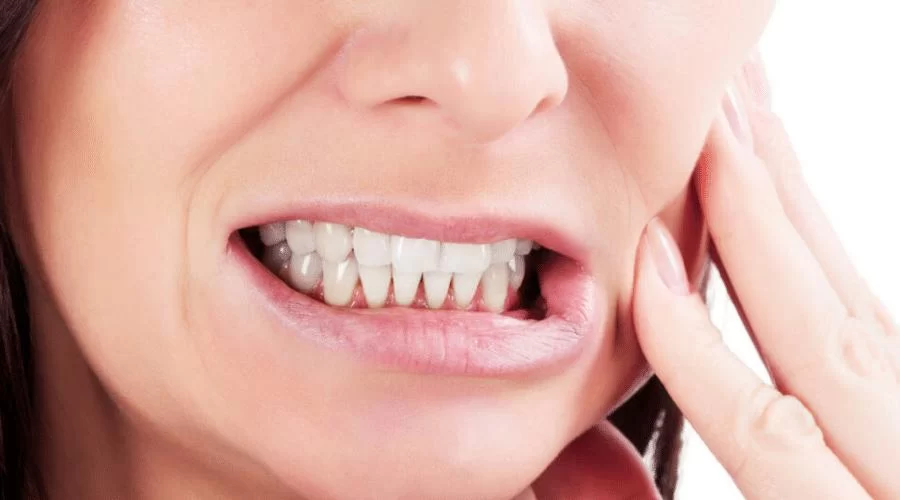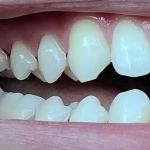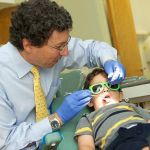
What Causes Teeth Grinding and How to Stop It
- 1. What is Teeth Grinding?
- 2. What Causes Teeth Grinding?
- 3. Psychological Factors Behind Teeth Grinding
- 4. How to Stop Teeth Grinding
- 5. Tips for Preventing Teeth Grinding at Night
- 6. Seeking Professional Help for Bruxism
1. What is Teeth Grinding?
Teeth grinding, medically known as bruxism, is the act of clenching or grinding your teeth, often during sleep, though it can also occur while awake. It’s a common condition that can cause significant dental damage if left untreated. Many people aren’t aware that they grind their teeth until they experience symptoms such as jaw pain or worn-down enamel.
2. What Causes Teeth Grinding?
Teeth grinding can be caused by a variety of factors, which often work together. The most common causes include:
- Stress and Anxiety: The most prevalent cause of bruxism is stress. When you’re anxious or under pressure, your body may respond by unconsciously grinding your teeth.
- Sleep Disorders: Conditions such as sleep apnea and snoring can also contribute to teeth grinding, especially during the night.
- Misaligned Teeth: If your teeth or jaw are misaligned, this can increase the likelihood of grinding.
- Medications: Some medications, particularly antidepressants, may have side effects that include teeth grinding.
- Lifestyle Factors: Excessive caffeine, alcohol consumption, or smoking can exacerbate bruxism.
3. Psychological Factors Behind Teeth Grinding
While teeth grinding may seem like a physical issue, it’s often linked to psychological stressors. People who experience high levels of stress or anxiety may unknowingly clench their jaw or grind their teeth. This can become a habitual response to dealing with everyday pressures or emotional distress.
In some cases, people with unresolved anger, frustration, or even underlying mental health issues may find that teeth grinding becomes a subconscious outlet for their emotions. Understanding and addressing the root causes of stress can be crucial in breaking the cycle of bruxism.
4. How to Stop Teeth Grinding
If you’re wondering how to stop teeth grinding, the good news is that there are several effective methods available. Here are some of the most popular treatments:
- Wear a Night Guard: A custom-fitted night guard is one of the most common solutions for preventing teeth grinding. This device, worn over your teeth, acts as a cushion to absorb the pressure and protect your teeth from damage.
- Manage Stress: Since stress is a leading cause of teeth grinding, learning stress management techniques such as meditation, yoga, or deep breathing exercises can help reduce grinding episodes.
- Behavioral Therapy: Cognitive Behavioral Therapy (CBT) has been found to be effective for treating bruxism related to stress or anxiety by addressing the psychological triggers.
- Physical Therapy: Jaw exercises can help relieve muscle tension and reduce the likelihood of grinding. Your dentist or therapist may recommend specific exercises to relax the jaw.
5. Tips for Preventing Teeth Grinding at Night
If you tend to grind your teeth while you sleep, here are some practical tips to reduce or prevent nighttime grinding:
- Avoid Stimulants: Cut back on caffeine or nicotine, especially in the evening, as they can increase muscle tension and the likelihood of grinding.
- Establish a Relaxing Bedtime Routine: Engage in calming activities before bed, such as reading, taking a warm bath, or listening to soothing music to help ease your mind.
- Sleep on Your Side: If you sleep on your back, it can make teeth grinding worse. Sleeping on your side may help reduce grinding.
6. Seeking Professional Help for Bruxism
If your teeth grinding persists, or if it’s causing significant damage to your teeth, it’s important to seek professional help. A dentist can evaluate the extent of your bruxism and recommend appropriate treatments, such as:
- Custom Mouthguards: These devices are designed specifically for your teeth to prevent damage and reduce grinding.
- Botox Injections: In severe cases, Botox injections may be used to relax the jaw muscles and reduce grinding.
- Dental Restoration: If your teeth have been worn down due to grinding, restorative dental procedures may be necessary to repair the damage.
Don’t ignore the signs of teeth grinding—left untreated, it can lead to tooth damage, headaches, jaw pain, and more. By addressing the root causes and taking steps to manage bruxism, you can protect your teeth and enjoy a more comfortable, restful sleep.
For more information on how to prevent and treat teeth grinding, or to learn more about our recommended mouthguards and other dental products, visit Dentistry Toothtruth.







 Lakewood Dental Care4.0 (12 review)
Lakewood Dental Care4.0 (12 review) Stephanie Dental Group4.0 (250 review)
Stephanie Dental Group4.0 (250 review) Dean Street Dental5.0 (259 review)
Dean Street Dental5.0 (259 review) Dr. Wayne E. Turk, DMD5.0 (3 review)
Dr. Wayne E. Turk, DMD5.0 (3 review) Smile Central Dental4.0 (506 review)
Smile Central Dental4.0 (506 review) Pacific Oral & Maxillofacial Surgery and Dental Implant Center4.0 (66 review)
Pacific Oral & Maxillofacial Surgery and Dental Implant Center4.0 (66 review) The Importance of Oral Health Education During Pregnancy for a Healthy Pregnancy
The Importance of Oral Health Education During Pregnancy for a Healthy Pregnancy Best Tips for Brushing Your Teeth Properly for Healthy Gums: Essential Techniques for Oral Health
Best Tips for Brushing Your Teeth Properly for Healthy Gums: Essential Techniques for Oral Health Why Skipping Dental Checkups Can Lead to Bigger Oral Health Problems
Why Skipping Dental Checkups Can Lead to Bigger Oral Health Problems Advantages of Porcelain Dental Restorations
Advantages of Porcelain Dental Restorations How Can Diabetes Cause Tooth and Gum Problems? Preventing and Managing Oral Health Issues
How Can Diabetes Cause Tooth and Gum Problems? Preventing and Managing Oral Health Issues Healthy Habits for Promoting Good Oral Health and Hygiene: Tips for a Healthy Smile
Healthy Habits for Promoting Good Oral Health and Hygiene: Tips for a Healthy Smile